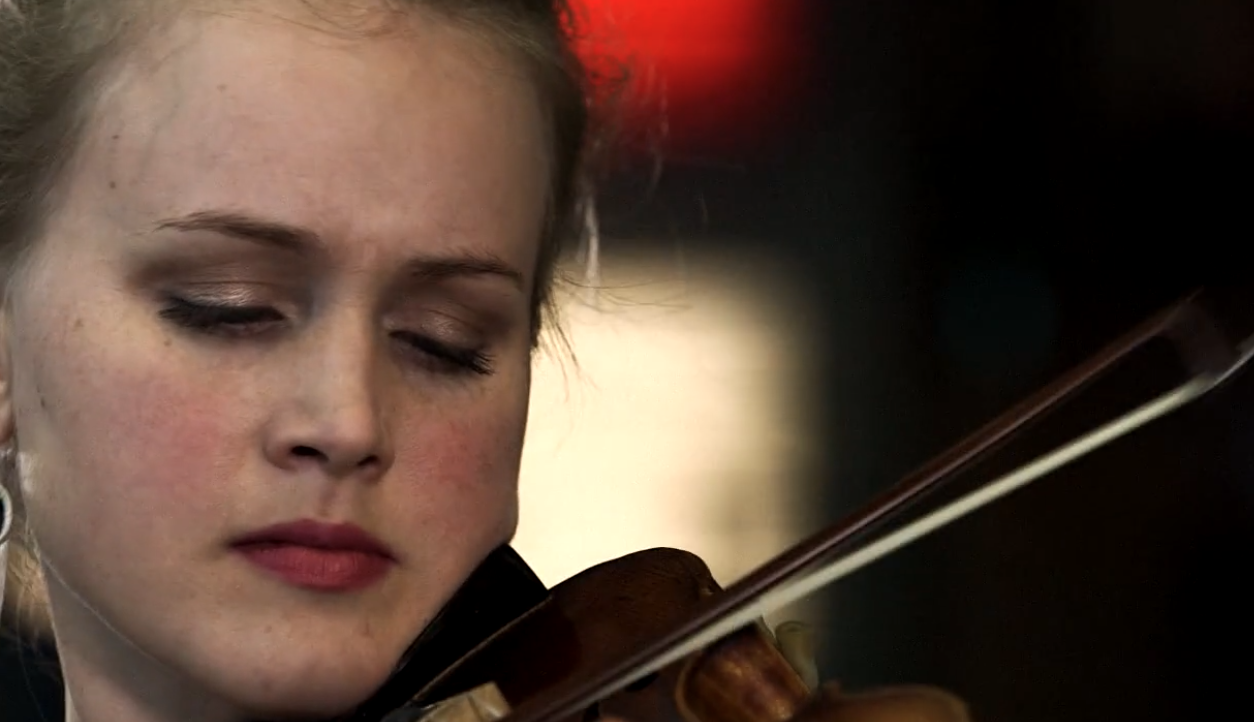Léonie Sonning Talent Prize 2017
Microphones are my instruments
It is not technique but a desire to achieve the best musical productions that draw Daniel Davidsen into the field of audio engineering.
I'm on the right track
These prizes confirm that what I am doing is okay. It has convinced me that I just need to keep on working hard and that more opportunities will arise, says Daniel, who is a very modest person despite his professional skills. He hesitates a little around the word Tonmeister and then says: I’s actually a funny job title. I don’t think I will ever become a MASTER, because there’s so much to learn, he says.
Daniel was inspired by his brother, who is a percussionist. He later started playing the piano and the trumpet. While working with an arrangement for his brass quintet Daniel’s attention was directed to software and music recording equipment. He wasn’t satisfied with his notation software – the sound was simply not good enough. So he bought better and more professional software, which could be used for music recording as well. From that day, his future was sealed.
Always clapping his hands the first time
When Daniel steps into a new recording environment, he walks around and claps his hands to determine the room’s acoustic qualities and to plan how to place the musicians and the microphones. During piano recordings, Daniel uses a sack full of firewood, which he spreads out on the floor below the piano. This may give a better sound. And the list could go on.
I’m not that crazy about being on stage and getting attention. I feel more comfortable with taking responsibility for the result when recording and editing the sound. It is important for me to make others safe and to build confidence, Daniel explains. He likes recording just as much as editing.
The pieces must fall into place
It’s like a computer game where the pieces must fall into place. But to get the optimal result when editing, it is important that I understand the music and have a certain sense of the proper set-up before recording, says Daniel, who expects as much of his partners as of himself.
It should not be abused that I can improve and correct a lot in the post-production phase. It can be both an advantage and a disadvantage of digitisation that is easier to edit. In the past, everything was cut in vinyl records or recorded on tape, which was pretty hard to edit, Daniel says.
I'm part of an artistic team
Daniel is highly enthusiastic about his equipment, and his tool box is already full so that he can record a complete symphony orchestra (which he is already doing), but it is not the equipment that makes his heart beat faster. The driving force in his work is a wish to optimize the musical experience and make the productions more sharp and detailed. The technique and a wide variety of microphones help enable him to achieve these goals.
Daniel is especially proud of the Sonning scholarship because it aligns him with the performing artists. He sees himself as part of an artistic team.
I’m interested in the result: performance, music and art. The first placement of microphones and listening to the first take is an exciting moment. The more experience I get, the more often I place the microphone correctly the first time, Daniel explains. He works as a professional sound engineer on productions with the Danish National Chamber Orchestra, Copenhagen Phil and Malmö Symphony Orchestra and on the recording of Sonning talents in 2016 and 2017.
Daniel Davidsen, Tonmeister
Born: 1986, raised in Copenhagen.
Tonmeister studies at the Royal Danish Academy of Music. He has made recordings with the Danish National Chamber Orchestra, Copenhagen Phil and Malmö Symphony Orchestra.
Scholarship
Microphones are the Tonmeisters instrument, where the sounds are made, and Daniel wishes to use the scholarship to purchase a number of modern American microphones that will serve to improve his productions.





